What does the calf need for 1,000 g daily weight gain?
Successful and performance-orientated calf rearing requires an intensive feeding regime. From the outset, the development of female calves should be geared towards the goal of a healthy, fertile dairy cow with a high lifetime yield. In addition to muscle growth, the focus is therefore particularly on the development of vital udder and reproductive tissue.
The DLG (2011) has already recognised the positive effects of increased drinking intensity on the development of calves and subsequent milk yield – with the recommendation of at least 1 kg of calf milk powder per day.
Worldwide, supply recommendations are continuously adapted on the basis of current studies. Consistent recommendations have been published for calves with high genetic growth potential in both the USA (NASEM, 2021) and Germany (LfL, 2021).
Central influencing factors
1. Energy as a basis
The amount of energy available is the first prerequisite – and at the same time the limit – for high daily gains.
A common calf milk powder with 17-18% fat provides around 18.2-18.3 MJ ME/kg. To cover the daily requirement of 24 MJ ME (according to LfL 2021), a calf needs around 1.3 kg of milk powder per day – even up to 1.5 kg at low outside temperatures.
2. Sufficient high-quality protein
A protein intake of at least 300-320 g crude protein per day is required so that the gains are not only converted into fat, but also into muscle and organ development.
A crude protein content of ≥ 22 % in the milk powder – in combination with 1.5 kg of feed – ensures a supply that covers requirements. For particularly high weight gains, we recommend using a calf milk with a higher protein content, e.g. BEWI-MILK® AM 5.
The LfL’s supply recommendation (2021) stipulates a daily supply of 24 MJ ME and 320 g crude protein for calves in the 50 kg to 78 kg weight range with very high daily weight gains.

Energy and protein supply recommendations (per day) (LfL, 2021 mod.)
Practical example: fat is not everything
Wilms et al. (2022) showed that calf milk with 25 % fat in the first 6 weeks of life led to the same energy intake as milk with 18 % fat – however, the protein intake was significantly lower due to the lower voluntary feed quantity. The animals with high-fat milk were saturated more quickly, which led to a protein deficiency despite sufficient energy.
Feeding recommendation:
- With 1.5 kg of calf milk powder per day, a fat content of 17-18 % and at least 22 % crude protein, the supply for optimum growth is guaranteed (BEWI-MILK® AM 9).
- For very high weight gains from the first day of life, calf milk with a higher protein content is recommended (BEWI-MILK® AM 5).
Protein quality plays a key role: it is not only the quantity that is decisive, but also the quality of the protein. A high proportion of skimmed milk powder ensures very good digestibility and tolerability.
To ensure that weight gains remain stable even after weaning, the calf concentrate should be optimally composed – especially with regard to a sufficient protein content.
Dairy farmer Klaus Dann shows how these principles can be successfully implemented in practice in a behind-the-scenes look at his farm.
Two types of calf milk for the highest demands
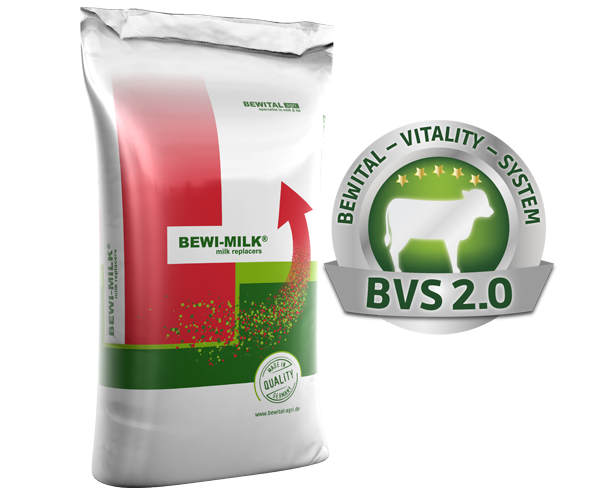
>> go to the product
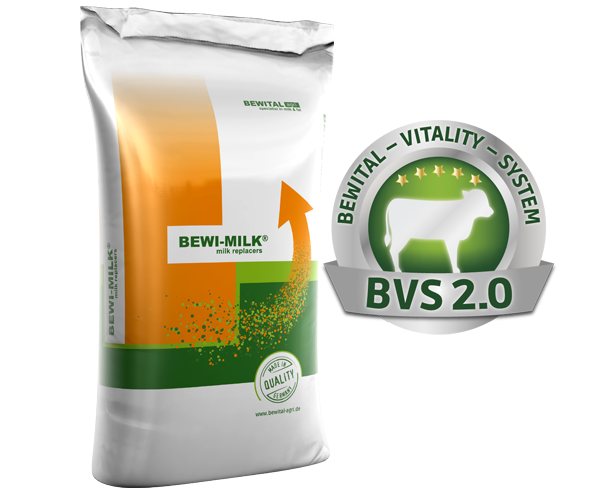
>> go to the product
Here's something else that may interest you:
-
Interview with Klaus Dann – A look behind the scenes
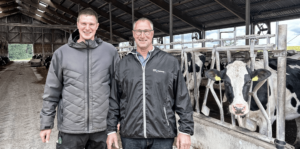
Klaus Dann provides insights into the feeding and health management of his farm and shows how he achieves sustainable top performance. With genomic selection as a foundation, high-quality feed and a clear strategy, he has laid the groundwork for a high-performance herd. BEWI-MILK® AM 5 plays a key role during the milk-feeding phase – helping to set the course for future top performance early on.
learn more -
Colostrum supply – “Four golden rules”
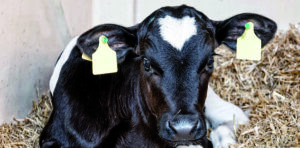
Calves do not receive any immunoglobulins in the womb via the cow's uterus. This means that immediately after birth, they are completely dependent on colostrum to build up their initial immunity. An inadequate supply of immunoglobulins in the first few hours of life has serious consequences: Immunodeficiency, high losses, poor weight gain and rising treatment costs are inevitable.
learn more -
Colostrum: Four practical approaches to enhancement
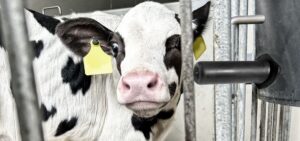
Farmers are responsible for ensuring optimal colostrum supply, making a vital contribution to calf health and reducing losses during the postnatal phase. Four farmers – four approaches: Discover how versatile BEWI-SAN Calf-Start is in practice – whether to enhance low-quality colostrum, in combination with the ColoQuick system, or even as a full colostrum replacement in cases of premature calving.
learn more